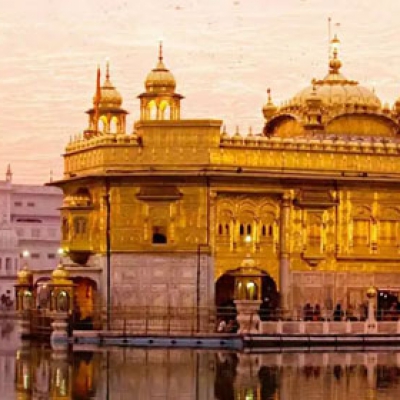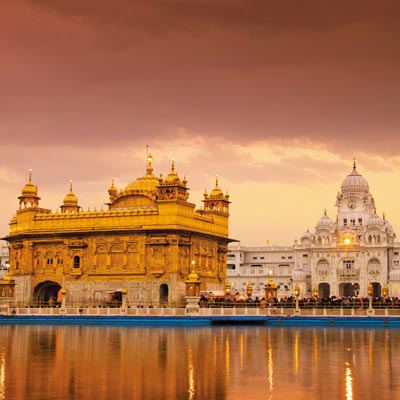Sikhism is a dynamic religion that emerged in the Indian subcontinent during the 15th century. It is considered one of the youngest religions globally, founded on the teachings of Guru Nanak and nine successive gurus. A significant aspect of Sikhism is the emphasis on pilgrimage, which holds considerable importance for its adherents. Pilgrimage, in the context of Sikhism, refers to a journey to a sacred site for religious or spiritual reasons. Known as 'Gurudwara Yatra' in Sikhism, these pilgrimages play a crucial role in the spiritual and cultural practices of Sikhs.
The Golden Temple in Amritsar, also known as Sri Harmandir Sahib, is one of the most prominent Sikh pilgrimages in India and is revered as the holiest shrine in Sikhism. Constructed by the fifth Sikh guru, Guru Arjan Dev, in the 16th century, the temple is encompassed by a vast holy pool named the 'Amrit Sarovar', which lends its name to the city of Amritsar. Pilgrims from various parts of the globe visit the Golden Temple to offer their respects and seek blessings.
An additional significant pilgrimage for Sikhs is the Anandpur Sahib, situated in the Rupnagar district of Punjab. Regarded as the second most crucial gurudwara after the Golden Temple, Anandpur Sahib holds historical importance as the birthplace of the Khalsa, a community of initiated Sikhs. Annually, on the auspicious day of Vaisakhi, Sikhs congregate at this gurudwara to commemorate the establishment of the Khalsa and to pay homage to their spiritual leaders. The gurudwara also accommodates the 'Panj Piare,' the five individuals who were the first to be initiated as Khalsa by Guru Gobind Singh.
In addition to the aforementioned major Gurudwaras, there exist numerous other Sikh pilgrimage sites throughout India that hold great importance for the community. Among these are Takht Sri Patna Sahib in Bihar, the birthplace of Guru Gobind Singh, and Hemkund Sahib in Uttarakhand, a gurudwara situated at a high altitude of 4,632 meters above sea level. Hemkund Sahib is revered as the 'Mecca' for Sikhs, as it is believed that Guru Gobind Singh engaged in meditation at this location in a previous life. These sacred sites not only form an integral part of Sikhism but also contribute significantly to the cultural and religious diversity of India.


